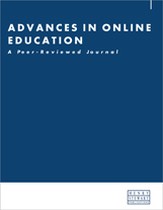Building a digitalised society: Opportunities and challenges of Austria’s three-pillar system of digital education
Abstract
In 2016 the Austrian Federal Ministry of Education, Science and Research initiated a network that combined all projects related to education and the digital agenda, called eEducation. The aim of the network, membership of which is free, is to help schools develop their digitalisation concepts. It distributes yearly funds for further teacher education to schools based upon their development level within the network. All central strategies related to digital developments are coordinated with the network. Two annual conferences help educators connect and exchange thoughts on using digital media in classroom work. eEducation is based at the University of Education in Upper Austria. Recent developments, notably the digi.case initiative in primary schools and the eight-point action plan, have achieved a good coverage and acceptance within the teaching community. Digital reference frameworks such as the European DigCompEdu and DigComp as well as national frameworks such as digi.komp4, 8, 12 and P are used for assessment purposes for both students and teachers. The new compulsory subject ‘Basic Digital Education’ has been introduced in 2022 for lower secondary schools (levels 5 to 8), based on an initiative for further teacher qualification which is offered by the Universities of Education throughout Austria. Teaching this subject involves using a competency-based concept that combines knowledge about how technology works but also what this means to the individual and society. All lower secondary schools in Austria participating in the device initiative as part of the eight-point action plan were able to choose the technological base; further teacher education is being undertaken related to the specific settings of each school. Financing is provided by the Federal Ministry. The eEducation network focuses on strengthening the digital skills of teachers to enable them to use digital media during classroom work, which also helps to develop digital competences of students. Organisational development is also taken into consideration by providing tools to develop digitalisation concepts. State coordinators of eEducation are part of the network and give feedback and support to schools. The Johannes Kepler University Linz is monitoring the developments of both the network and national digital strategies and publishes research findings. The overall purpose of all these initiatives is to build a well-established structure of a digitalised society in Austria.
The full article is available to subscribers to this journal (subscription is free).
Author's Biography
Andreas Riepl is Head of eEducation Austria, a project initiated in 2016 by the Federal Ministry of Education, Science and Research and managed by the University of Education in Upper Austria. The main focus of the initiative is to strengthen the digital skills of teachers in the Austrian school system in general and support schools in this effort. Andreas has been teaching in upper secondary education in Austria for 20 years (School of Business Administration Steyr) with a strong emphasis on using digital media during classroom work in open learning scenarios. He was co-founder of the COOL initiative (Co-Operative Open Learning) and has developed several software plugins for the learning management system MOODLE featured as the Open Source Exabis suite. His background is in sociology and business informatics which he studied at the Johannes Kepler University Linz.
Citation
Riepl, Andreas (2023, March 1). Building a digitalised society: Opportunities and challenges of Austria’s three-pillar system of digital education. In the Advances in Online Education: A Peer-Reviewed Journal, Volume 1, Issue 3. https://doi.org/10.69554/YSMO4155.Publications LLP
